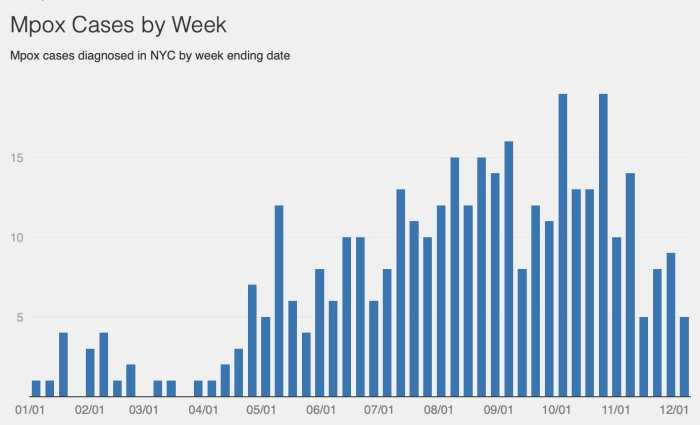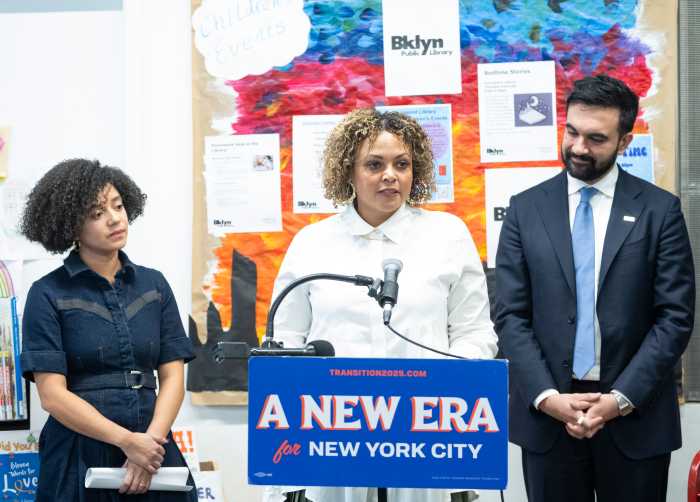No matter how well the Supreme Court nomination of Samuel Alito fares, right-wing activists hurt the Republican Party by blocking the nomination of Harriet Miers to the Supreme Court without even allowing her a hearing. Her abrupt retreat gave a rightist stamp of approval on the emerging Democratic argument that President George W. Bush has peopled his administration with unqualified cronies. With the right and the left in agreement, voters will conclude that the White House values loyalty over ability.
Competency will thus join ethics in a growing cloud over Bush and become an election issue in November 2006.
The major media will cover the pesident’s struggle to regain control of the agenda in Washington, but so far they have not pried too closely into the question of how Democrats will take advantage of Republican weakness. The Bush administration presents a tempting target around which to wage the 2006 Congressional elections. The president’s competence is under scrutiny, with high gasoline prices and the war in Iraq fueling growing discontent. By next year, inflation could also be an issue presenting the Democrats with electoral opportunities.
The Republicans are in trouble, but don’t count them out. One rule of electoral politics is that you can’t beat something with nothing. The Democrats have to find candidates and articulate a message that attract voters.
The Democratic Congressional Campaign Committee will coordinate the party’s elections for the House of Representatives. Its playbook could well follow the precedent set during the 1994 election by then Republican leader Newt Gingrich. He engineered a Republican takeover of the House of Representatives for the first time in 40 years and made possible the dream of a permanent Republican majority.
At that time, the GOP bashed President Bill Clinton over gays in the military and dismissed the administration’s flagging national health care reform initiative as Hillary’s folly, but the 1994 victory capped years of hardball by Gingrich. Democratic Speaker Jim Wright of Texas was forced out in a scandal in 1989. Three years later, other Democrats were convicted of swapping House stamps for cash. By Election Day 1994, not even Speaker Tom Foley could hold onto to his Washington State seat, the Republicans won a surprise majority, gaining an astounding 54 seats, and Gingrich was the unlikely new speaker.
The parallels with today are promising. Bush is far weaker today than Clinton was in 1994. In the House, Majority Leader Tom Delay has been indicted and forced out of his post as number two member of the House. Other Republicans are indicted or under investigation. The Republicans are the bums who might be thrown out in 2006.
Newt Gingrich’s Contract With America was a list of conservative proposals including tax and welfare reform that avoided divisive issues like abortion or school prayer. While most proposals never became law, the Contract gave momentum to the overhauling of the welfare system enacted by Clinton, when he had regained his political footing. Yet, until that happened—largely because Gingrich overplayed his hand in a budget battle that led to a government shutdown—for a few brief months the GOP was the reform party in America.
Today, the House Democrats are searching for a set of issues that will help their candidates narrow or end the Republican majority. The nub of the problem is deciding what will appeal to moderate voters, and of course on those policy choices the Dems are divided.
One side of the divide includes New Democrats, most notably Bill and Hillary Clinton, who support a balanced budget and favor cautious flexibility toward over-committing on social issues such as gay marriage and gun control. Two political consultants, William A. Galston and Elaine C. Kamarck, just presented this viewpoint in a study they published, “The Politics of Polarization.”
The other side of the divide is most clearly identified with left-of-center political leaders such as Congressman Bernie Sanders of Vermont and the late Senator Paul Wellstone of Minnesota, who famously said, “I represent the Democratic wing of the Democratic Party,” a catch-phrase adopted with some success, at least temporarily, by Howard Dean last year.
This more progressive viewpoint was recently articulated in detail by Robert L. Borosage, who emphasizes an attack on corruption and the need for a public jobs-creating program aimed at rebuilding America’s infrastructure—the levees of New Orleans making up Exhibit One in his case. In the October 24 issue of The Nation, Borosage emphasized that the goal of creating jobs can also be tied to a national program of energy independence. Borosage would have the Democrats attack the Republican agenda as welfare for the rich, while supporting government expenditures that increase employment.
Borosage, the co-director of the Campaign For America’s Future, is unwilling to cede the national security debate to the more moderate New Democrats. But he does de-emphasize military power, in favor of civil preparedness in the face of all manner of catastrophe, man-made or natural.
In contrast, many New Democrats emphasize that “appropriate use of force” can promote peace and human rights, and indeed they by and large support the war in Iraq. Borosage, in a telephone interview, said the Democrats “are terrified by Iraq” because of internal divisions on the issue and fears of a Republican attack. While the public is turning against the war, “their views are not strongly held.” Democrats continue to fear a nightmare scenario in which Bush uses his bully pulpit to accuse them “at the end of the day of besmirching the sacrifice” of combat troops. All they can recall is John Kerry’s cluelessness last year in the face of such suggestions.
Galston and Kamarck, in contrast, argue that there are 50 percent more self-identified conservatives than liberals in the U.S. and that Democrats must therefore win more than 60 percent of the moderates who sees themselves as independent. In other words, just stoking the Democratic base will not do it for the party. Moderates, by their account, typically don’t have much college education, respond negatively to liberal sentiments about abortion and gay marriage, and feel secularism may have gone to far in our society. Galston and Kamarck assert that 74 percent of Americans support the public display of the Ten Commandments. Liberalism, they say, is a hard sell with moderates.
Borosage insists that New Democrats miss an important point—that the public has an expectation that the Democratic Party stands for the working American and against getting bogged down in foreign conflicts. To the extent Democratic candidates depart from these expectations, their candor and sincerity come into question by voters. Borosage believes the public is eager to see real Democrats run for office.
That central tenet could make for a Democratic unity next year with real results on Capitol Hill in 2007.
gaycitynews.com




































